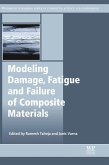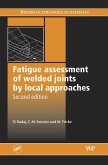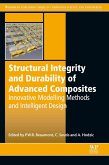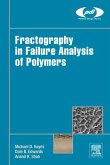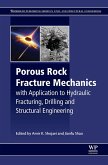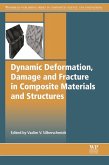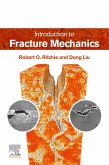This book reviews recent research in the field of fatigue and fracture of adhesively-bonded composite joints. The first part of the book discusses the experimental investigation of the reliability of adhesively-bonded composite joints, current research on understanding damage mechanisms, fatigue and fracture, durability and ageing as well as implications for design. The second part of the book covers the modelling of bond performance and failure mechanisms in different loading conditions.
- A detailed reference work for researchers in aerospace and engineering
- Expert coverage of different adhesively bonded composite joint structures
- An overview of joint failure
Dieser Download kann aus rechtlichen Gründen nur mit Rechnungsadresse in A, B, BG, CY, CZ, D, DK, EW, E, FIN, F, GR, HR, H, IRL, I, LT, L, LR, M, NL, PL, P, R, S, SLO, SK ausgeliefert werden.



